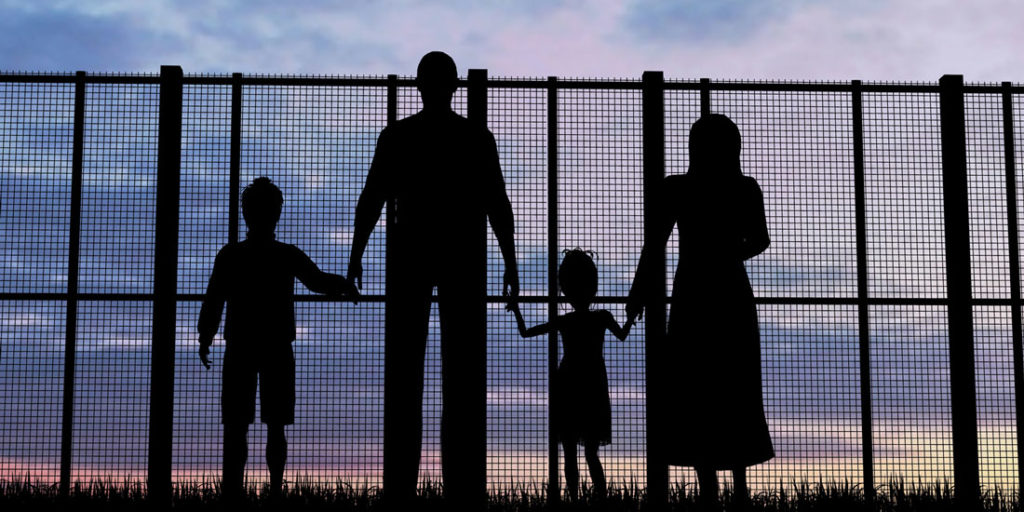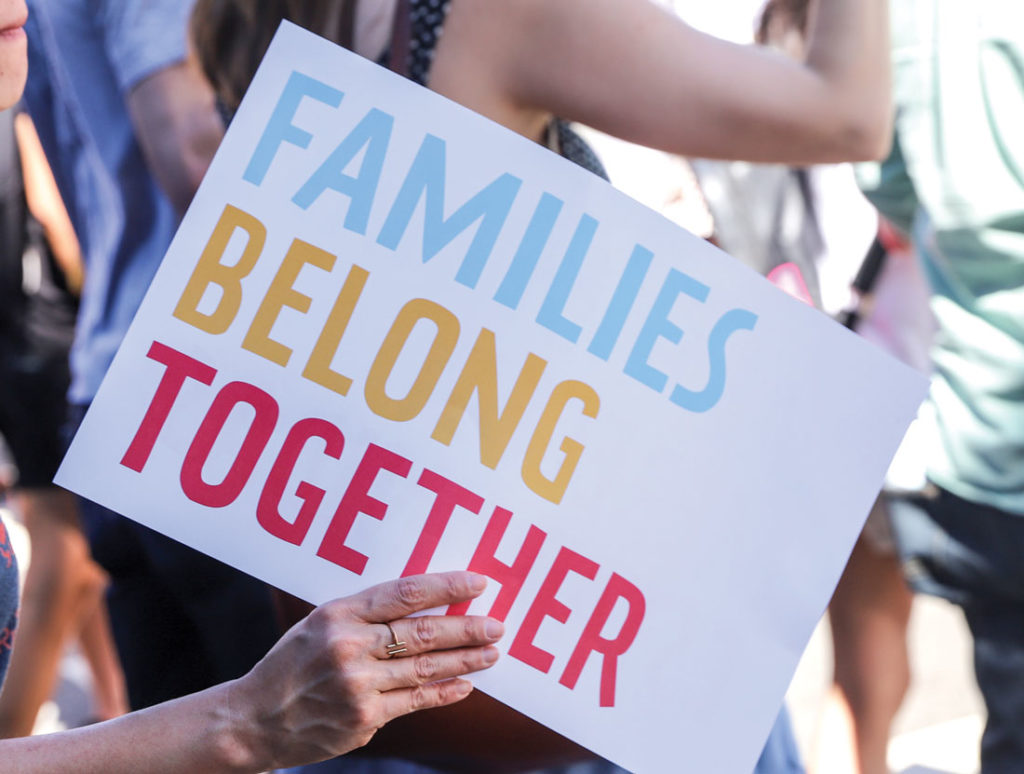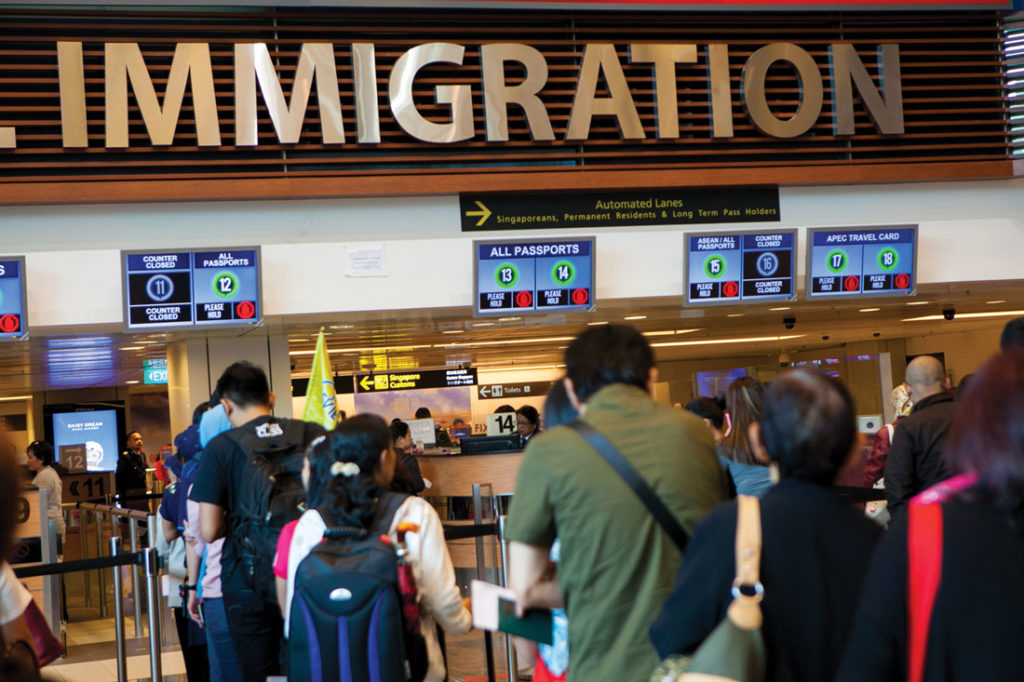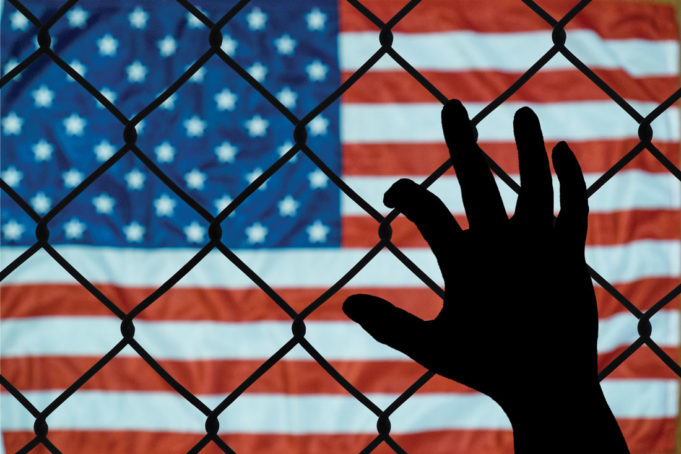My Story
My immigration story began many months before I boarded a plane from Manchester International to DFW Airport one late May morning in 2014. That day, my spirits where as light with hope as my wallet wash of cash, having incurred $300 in excess baggage fees.
In early 2014 as a spry 43-year-old, I had begun the exhaustive process of form-filling, fee-filing, police checks, references sought, and on and on. I was happy to do it. The day when all the promise and forms and such became real was a wet Wednesday in April. I got up early, way earlier than I like to. For me back then, 4 in the morning was more likely to see me coming home than leaving it. I duly left my Edwardian row house in Liverpool, England, bound for my home city’s airport for the 50-minute flight to Belfast, Northern Ireland. This would be my first visit to the city that had been at the center of the Troubles most of my life. I was intrigued to experience the buzz around the renaissance of Belfast that had, by many accounts, flourished since the Good Friday Agreement, signed in 1998, gradually made both sides of the Irish divide safer and wealthier. First, I had business to take care of at the United States Consulate General.
I arrived suitably early on the western side of the Irish Sea, early enough for my bus ride from airport to downtown to furnish me with top-quality spotting of people on their way to urban offices or back home after the night shift. Gaelic smir inexorably yet politely soaked my rain jacket under which I had dressed in a fresh-bought crisp white shirt and Italian silk tie in what I would soon learn was TCU purple to complement a fine pair of Marks & Spencer dress pants and plain black shoes. Dress like you are taking this seriously but not like you have something to hide, I had counseled my bleary image a few hours earlier. Having knocked back a decent Americano and a buttery pain au chocolat, I hailed a cab from downtown to the embassy, some 15 minutes’ drive south. Besides, I had dried out by now, and anyone who knows northern Europe understands that the light rain was well set, perhaps for weeks.
I negotiated the reassuringly friendly armed guards at the barrier to gain entry to the Consulate, wherein pedestrian access only is permitted for visitors with verifiable documentation of an appointment. Once inside, I could have been in any generic waiting room. The setting felt a little prosaic for such a momentous occasion. On molded plastic seats fixed to metal bars sat an array of identifiably Irish folks, all some combination of pale complexion, freckles, green eyes, and red or very dark brown hair. The guy who appeared to have fashioned himself on Uncle Paulie from The Sopranos stood out like sore stugotz. There was a tangible sense of multiple individual messes of anxiety, hope, and trepidation toward what lay behind the sturdy-sounding doors through which people went in and out. Twenty minutes or so after my prescribed appointment time, I was called into the unknown. This was it. The next 30 minutes or so would decide whether or not I was granted my visa to move to the United States. I had done my homework and then some. I was ready. I researched and rehearsed answers to every question on every website and immigration forum known to humankind. Seven minutes later, I was out of the door with a visa stamped in my passport. The Velma lookalike from Scooby-Doo who interviewed me was from Tyler, Texas. All she needed to know was what I love about Texas? (That was an easy one –– the people, climate, food, and can-do attitude.) What I was most looking forward to when I get there? (Same answer.) She was keen to confirm that I knew it would be hot there this summer. I skipped out of the building before the B of the bang of the interview room door.
While my path to Fort Worth was fairly routine – long, expensive, labor intensive, and absolutely worth the time, effort, and money – I was interested in gaining different perspectives. At a time when some seek to persuade us that the entire country is in crisis due to an invasion of immigrants, I would like to establish some real-world context. Consider my story of straightforward entry to the United States. I arrived in Fort Worth, a supposed nexus of the invasion, after many months and even more dollars. Getting here was difficult, and I qualified only because I have a college education and a clean police record. I spoke with three people who cast light on different aspects of the immigration process at different times in their lives and careers. A number of personal identifying details have been omitted from the following personal narratives. I want the focus to be on their stories rather than prejudgment or second-guessing. I thank these people for their time and candor.

Story 2, F.A., 30
I was 4 years old when my dad left for El Norte. One of the memories I have, we were watching TV, something about the ozone layer, then the Berlin Wall. I saw my dad heading down the street on his bike in the rain. He had asked me to ‘take care of Mom,’ insisting that ‘you are the man of the house now.’ Maybe I was 5. I think I was 6 when I started kindergarten and my mom saw me through the first day. I think about it a lot – the type of person I turned out to be. One day, she said, ‘Alright, I am leaving. Take care of them.’ I had two younger siblings – a sister and baby brother. She decided to join my dad in Nacogdoches, but the living conditions for a couple were not good, so they moved to Dallas. I stayed with my grandmother, my mother’s mom.
The three of us came together, then my older brother and older sister tried to come two or three years later. Only my brother made it. My sister got scared. She was really frightened and went back but came a couple years later. I try not to think about when I crossed. I got a flashback recently. The visuals are … . There was a party at my other grandmother’s house. They were wealthy. They were bakers. It felt like a festive day – people brought ice cream. It was like midday, and my uncle was like, ‘OK, let’s go.’ We went through different cities, different places. It was about four days. I don’t know exactly where the lady who crossed us lived, but it was in a bigger city. There were hamburgers there. We met other children there, and they ended up crossing with us. Our uncle, he was holding our hands the whole way. We ended up in a house full of children our age. We were introduced to the lady who would drive us across. There was no real explaining. I had no idea what was going on, but we were told to trust this lady. The day before we crossed, my uncle went back, and we didn’t see him again. It was at night when they put us in a car. A small sedan car. Burgundy. There were at least four other children, infants. We were crammed in the back of the car, and we were told to duck down and ‘don’t make a peep.’ They put this perfume on me. There are perfumes that are magical. Smells like sandalwood. That’s another thing –– I associate it with my mother. She burnt it all the time. Made me wear it all the time. So we pull up in the car, and there is a man telling the lady to pull over. I remember her cussing. She was crying. All the children –– I am trying to figure out what happened –– something didn’t seem right. She was trying to pass us as her family. We were stopped. I was there pretending to be asleep. What’s happening? She is freaking out. Suddenly I feel the car start moving, and she sped away. Basically, she was running for it. All the time shouting, ‘Please don’t come! Please don’t come!’ The younger kids started crying. Do I look? I don’t know what’s happening. We ended up … I don’t even know where we ended up. We stopped at a convenience store and bought a gallon of milk. My family had put that seed in us that we were going to see our mom and dad. They would send us books. They would send us clothing. They used to work in a Goodwill distribution center. I got books. I had 15 copies of Rocky Horror Picture Show stuff in English. I didn’t know what it was. I loved my books. They were from the place where they have everything. Where I am from is just mountains and sand. I remember looking up and seeing green like I had never seen. Not to this extent.

Story 3, I.J., 25
I graduate in May with my fine arts master’s degree. I moved to Fort Worth in 2016, and I hope to stay here. I see it as my home. I have friends here, a network, and a boyfriend. I just really love it here. I hope to move to Arlington because it’s a lot cheaper than here or Dallas, and I love the restaurants. I remember before I moved here, and there was the shooting in Dallas, and my dad didn’t want me to move. Where I live, off to the side of Bluebonnet Circle, I’ll hear gunshots and shit at night. It’s perfectly safe, but people just love shooting guns at night, obviously. I love the optimism here, and I can go where I want to go. I live on a big continent, basically, and I can go to any state, and it’s a different culture.
I’ve applied for my OPT [Optional Practical Training], which means I can work for 12 months after I graduate, so it’ll go from F1 student visa to OPT. I have to wait ’til July before I can work so that the visa covers the school year. I went to an immigration workshop and found out my job has to be related to my major. They have an immigration lawyer, and he said you have to do education because an art degree is something you don’t need –– anyone can be naturally good at art, like dancing and singing and acting. That’s how the government sees it, so I get my OPT, and if a company likes me enough, I can apply for my H1B visa. They can sponsor me. To stay here longer, you have to do education. I was very upset by it. It’s a kick in the face for my degree, and there are less opportunities. I am sure he told me I have to be on H1 for five years to apply for my green card, but it is confusing. You call up, and you get a robot. I can’t imagine applying and your second language is English. I eventually find out things I should have known years ago.
When I first arrived I was traveling with my parents, and the guy at passport control just waived us through at Chicago. When I got to Fort Worth and went to enroll in classes, the Admissions Office told me, ‘Oh, it’s illegal for you to be here. You have to leave the country and come back.’ I flew to Mexico City, went to a different terminal, and flew back to DFW Airport. When I got there, guy checking my passport was like, ‘Where’s your luggage? Why don’t you have luggage? Why have you been in Mexico for a few hours?’ I was almost begging him to let me in. I am just a student. I have a lot of opinions about Chicago O’Hare airport.
I just found out that I owe money on my tax return. All the international students I know owe tax money. It’s always seen as immigrants come over and drain the system and drain the economy. I pay taxes. I have a terminal degree, and I can’t stay here unless I work. Hopefully, I can do the teaching program, so I can stay here and work, so long as it is art-related. I can’t go 90 days unemployed over the 12 months of the OPT. I can take up as many jobs as I want, and volunteer work counts. I can’t do adjunct work because I need something that offers me healthcare. I have heard the H visa is a bit of a lottery, but maybe I can be a citizen by the time I turn 30.

Story 4, V.S., 35
As my wife and me pulled up outside the pawnshop, I felt defeated, beaten down by two years of wrong turns, dead ends, and unscrupulous attorneys. We got a few hundred dollars for jewelry and a few sundry items we decided we could live without more than food for the rest of the month. My wife has a good job and works her ass off, way past the required 40 hours per week, without overtime, nor does she ask for it. We had come to Fort Worth on the back end of several years of struggle. We arrived with hope in our hearts, graduate degree certificates in plastic envelopes, and $1,500 to our names. Twenty-seven boxes of books made their way by shipping container. Most else we had sold or donated.
The pawnshop was a particular slice of Texas in one careworn container – Purple Heart Pawn and Gun. Short and long arms mingled with game consoles, blingin’ watches, and jewelry of all persuasions. The staff was Texas-friendly but with a cool efficiency that was by turns welcome and chilling. I couldn’t help but wonder how many thousands of times these guys had relieved good honest folks of their valuables knowing and hopefully caring that parting was far from sweet sorrow for the sellers. This was absolutely the low point in terms of personal pride. Sure, there had been lower points in terms of making progress toward the ultimate goal of a good job for me that used my qualifications and experience to their fullest and the money that goes with that, too. I was on a spousal visa that appears to be designed for an early Mad Men-era housewife. I could get a driver’s license and work as a volunteer but could not get paid in any way, shape, or form ’til my green card came through.
After the pawnshop episode, I bit the bullet I had been dodging for two years. Initially, my inquiries were made discreetly in the extreme. Eventually, the mountain came to Mohammed, and a friend of a friend offered me paid work, no questions asked. I did a series of under-the-counter work ’til I was able to get paid legally. Most of the time, people were friendly and uncurious. Not to make or belabor a political point, there was a definite change in tone around the 2016 election. When work took me out of the city, I was often asked about where I was from, how I got here, and whether I was ‘an illegal.’ I wasn’t and never have been.
The lowest low was the day we discovered that the well-known firm of high-street attorneys that had been working on our green card applications for 18 months had, in reality, not been working on our green card applications for 18 months. The applications had not left the desk of the lying piece of shit that we spoke with and emailed us numerous times with ‘updates.’ We found another immigration attorney, the one my wife’s employer used. They wanted $11,000 to fully process two green card applications in what they estimated would be no more than 12 months. Twenty months later, we both had green cards, thanks to a non-aggressive payment plan we only just finished and the patience of several saints. Five months prior to that, I received my Employment Authorization Document, allowing me to do paid work, pending my green card. I have the job I always wanted and look forward, never back, in the main. I genuinely believe I am better person for the rollercoaster I rode. Would I do it all again? Definitely, but in the words found often on a design document in need of revision, ‘Same but different.’
The magical card is good for 10 years. Five years after securing Permanent Resident Alien status – yes, ‘alien,’ really – I will be eligible to apply for citizenship. Enough of this shit. I am getting citizenship. To hell with it. I will run for office on a pro-immigration reform ticket. Who is with me?l













Excellent article. I appreciate the personalization of migration and immigration in the recounting of individual experiences.